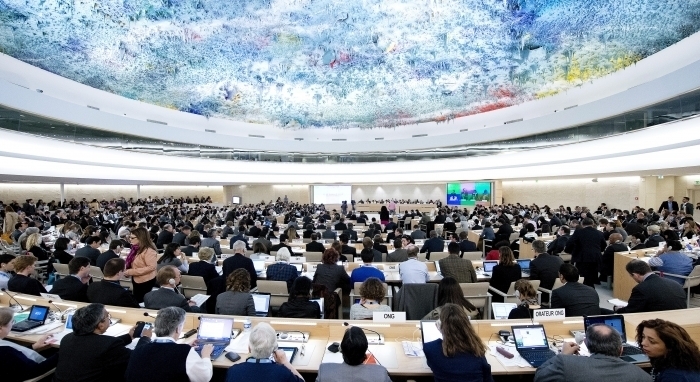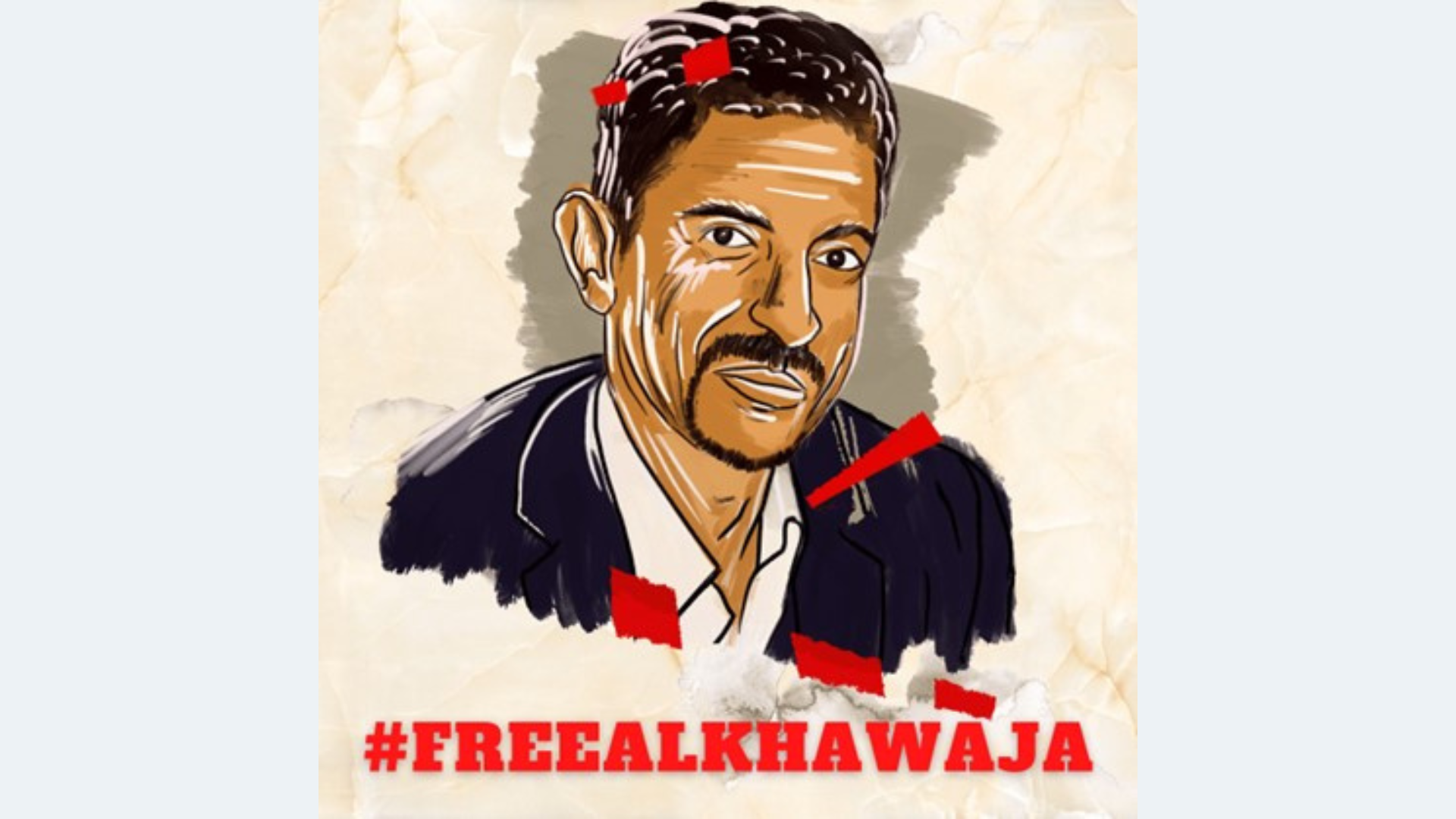85 national, regional and international organisations have put their name to a call to the Human Rights Council to renew and strengthen the mandate of the fact-finding mission to Venezuela, which will report to the Council at the upcoming session in September.
In their statement to the Council, the organisations note that, given the lack of judicial independence in Venezuela resulting in rampant impunity, an international accountability process is urgently needed.
Renewing and strengthening the mandate of the fact-finding mission would allow it to go beyond its more limited current mandate to then ‘collect, consolidate, preserve and analyze evidence for future prosecutions or other accountability purposes, including international justice mechanisms, in order to avoid impunity for crimes under international law and gross human rights violations committed in Venezuela.’
Venezuela has been the subject of two recent Council resolutions requesting, amongst other things, reports from the Office of the High Commissioner for Human Rights which now has a small temporary presence in the country. Establishing a permanent presence through a re-negotiated Memorandum of Understanding is also on the table for September.
‘Venezuela is the focus of several UN initiatives currently,’ noted ISHR’s Eleanor Openshaw. ‘In all cases, the analysis and recommendations of national level human rights organisations should be sought and considered – these can act as a steer for effective action,’ she added.
The fact-finding mission’s report on Venezuela, prepared without the Venezuelan State allowing the UN experts access to the country, is expected to be published on 8 September. The Council runs from 14 September – 6 October with final decisions generally made in the final two days of the session.
Contact: Eleanor Openshaw [email protected]
Photo: Jean-Marc Ferré- UN Photo
The full NGO statement on the renewal and strengthening of the fact-finding mission on Venezuela:
Venezuela: Human rights organizations call on UN Human Rights Council to extend and strengthen Fact-Finding Mission
Today, 85 national and international human rights organizations have launched a call on states at the UN Human Rights Council to renew and strengthen the important mandate of the Independent International Fact-Finding Mission on Venezuela during the upcoming Council session in September. States should ensure that the Fact-Finding Mission has sufficient funding and is empowered to collect, consolidate, preserve and analyze evidence for future prosecutions or other accountability purposes, including international justice mechanisms, in order to avoid impunity for crimes under international law and gross human rights violations committed in Venezuela.
The Fact-Finding Mission was launched by the Human Rights Council through resolution 42/25 on September 27 of 2019, with a mandate to investigate human rights violations, including extrajudicial executions, enforced disappearances, arbitrary detentions and torture and other cruel, inhuman or degrading treatment since 2014, with a view to ensuring accountability for perpetrators and justice for victims. Although the Mission was not allowed to enter Venezuela, it will present its report to the Human Rights Council in September 2020, when its current mandate ends.
The need for this international mechanism to continue to investigate and report on crimes under international law and human rights violations in Venezuela is clear in a context where they continue unabated, despite heightened international scrutiny, and impunity for these crimes at a national level is the rule.
Millions in Venezuela continue to suffer violations of the rights to life, freedom, physical and mental integrity or access to justice. The COVID-19 pandemic has only compounded and worsened the humanitarian emergency in the country, where many people face difficulties in accessing health care services, water, food, fuel, electricity and gas, all of which hamper their ability to protect themselves from the pandemic. More than 5.2 million Venezuelans have fled the country due to the human rights, humanitarian, political and economic crisis in their country. Meanwhile, the pandemic has also served as a twisted justification for Nicolás Maduro’s government to continue and expand its crackdown on dissent, including health care workers and journalists.
These serious human rights violations and crimes under international law are facilitated by generalized impunity at the national level. As many organizations have reported, and a recent UN High Commissioner for Human Rights report has made clear, Venezuela’s justice system lacks independence and systemically fails to provide impartial justice to victims of human rights violations. Instead, Maduro’s administration is using it to criminalize and control the population.
The publication of the Fact-Finding Mission’s first report in September will mark an important first step on the path to accountability in Venezuela through the documentation of the participation of those suspected of criminal responsibility. It is critical that the Human Rights Council respond meaningfully to the findings and recommendations in the report. States need to ensure the full renewal and strengthening of the Fact-Finding Mission’s mandate and make sure it has adequate resources to continue its critical investigations.
A.C. Reforma Judicial
Acceso a la Justicia
Acción Solidaria
ACCSI Acción Ciudadana Contra el SIDA
Alerta Venezuela
Alianza de Familiares de Víctimas del 2017 (ALFAVIC2017)
Amnesty International
Asociación Civil Fuerza, Unión, Justicia, Solidaridad y Paz (FUNPAZ)
Asociación Civil Mujeres en Línea
Asociación Gremial Pensionados y Jubilados en Venezuela residentes en Chile
Asociación Venezolana en Chile
Aula Abierta
Caleidoscopio Humano
Canada Venezuela Democracy Forum
Cátedra de Derechos Humanos de la Univerisidad Centrooocidental Lisandro Alvarado
Catedra de la Paz y Derechos Humanos Mons Oscar Arnulfo Romero de la Universidad de los Andes
Center for Justice and International Law (CEJIL)
Centro de Acción y Defensa por los Derechos Humanos
Centro de Derechos Humanos de la Universidad Católica Andrés Bello (CDH-UCAB)
Centro de Derechos Humanos de la Universidad Metropolitana (CDH-Unimet),
Centro de Documentación en Derechos Humanos “Segundo Montes Mozo SJ” (CSMM)
Centro de Estudios Legales y Sociales (CELS)
Centro de Formación para la Democracia CFD
Centro de Justicia y Paz (CEPAZ)
Centro para los Defensores y la Justicia (CDJ)
Centro para los Derechos Civiles y Políticos (CCPR)
CISFEM (Centro de Invetig. Soc. Formación y Estudios de las Mujeres.
Civilis Derechos Humanos
Clínica Jurídica de Migrantes y Refugiados de la Universidad Diego Portales
Clínica Jurídica para Migrantes y Centro de Estudios en Migración, Universidad de los Andes
Codhez
COFAVIC
Comisión de Derechos Humanos de la Facultad de Ciencias Jurídicas y Políticas de la Universidad del Zulia
Conectas Direitos Humanos
Control Ciudadano para la Seguridad, la Defensa y la Fuerza Armada Nacional
Convite AC
Defensa en Acción
Defiende Venezuela
EPIKEIA. Observatorio Universitario de Derechos Humanos
Espacio Público
EXCUBITUS Derechos Humanos en Educación
Foro Penal
FH
FUNCAMAMA
Fundación Aguaclara
Fundación Apure Lidera
Fundación colombo venezolana Nueva Ilusión
Fundación para el Desarrollo Integral FUNDESI
Fundación Ramón Devia
Fundamujer
Global Centre for the Responsibility to Protect (GCR2P)
GobiérnaTec
Gritemos con Brío




